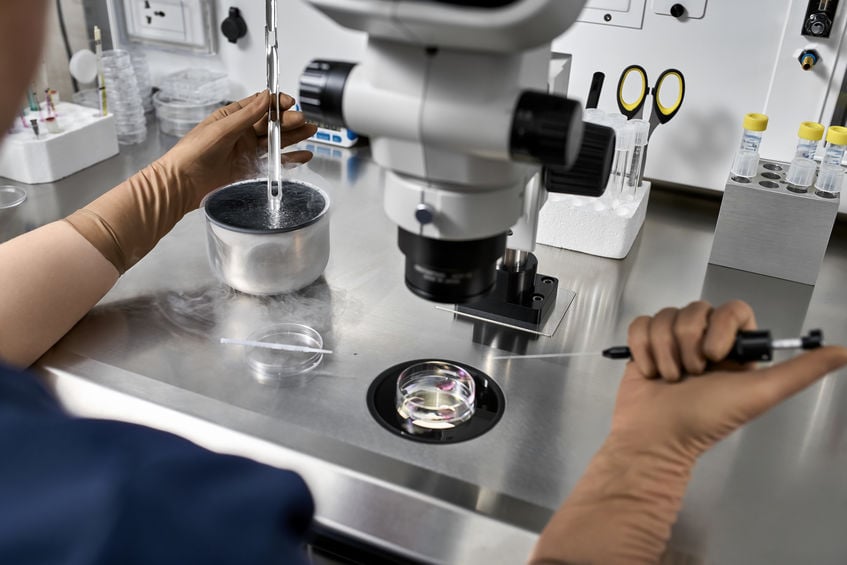Getting Pregnant With PCOS
Polycystic ovarian syndrome (PCOS) can negatively affect female fertility, but pregnancy is still possible. Fertility treatments such as intrauterine insemination (IUI) and in vitro fertilization (IVF) can help increase the chances of conception. Although both IUI and IVF are effective, women with PCOS often wonder which treatment is best.

PCOS deep dive
Affecting as many as 5 million women in the US, PCOS is a common but complicated condition. Women with PCOS produce excess testosterone in the ovaries. Symptoms can include missed or irregular periods, ovarian cysts, acne, weight gain, excess body hair, and infertility. Women with PCOS are often insulin resistant, which increases the chance of serious health problems such as type 2 diabetes and heart disease. The exact cause of PCOS is unknown.
Exploring fertility treatment
Although natural pregnancy is possible, many women with PCOS will require fertility treatment to conceive. Ovulatory stimulants are the first line of treatment for women with PCOS. This medication helps eggs mature and be released during the treatment cycle. Antihyperglycemic drugs may also be added to the regimen to increase ovulation rates. If medication treatment is unsuccessful, the patient will be offered the choice of moving on to either IUI or IVF as the next step.
Intrauterine insemination
With IUI, fertility medications are also used to encourage egg growth, which is closely monitored. The big difference is that a sperm sample is collected from the male partner, cleaned, and concentrated. Once ovulation is about to occur, the sperm sample is inserted directly into the uterus using a catheter. If the egg and sperm successfully meet, pregnancy occurs.
Getting pregnant with IVF
In the world of fertility, in vitro fertilization is considered the gold standard. This fertility treatment also uses medication to stimulate egg growth. The eggs are retrieved from the ovaries and combined with sperm in a lab to create healthy embryos. If all goes according to plan, the embryos are transferred back into the woman’s uterus in hopes of implantation.
Which treatment is better?
Generally speaking, IVF has higher success rates than IUI. The advanced IVF technique takes conception a step further in the lab by creating embryos for transfer. However, each patient is unique, and the plan of care should be decided on a case-by-case basis. Younger women with no other underlying health conditions may want to start with IUI. On the other hand, older women, individuals with severe PCOS symptoms, and couples who have previously had trouble getting pregnant may want to move straight to in vitro fertilization.
Your baby, your way
Whether pursuing IUI or IVF, women with PCOS should know that fertility treatment can make a big difference in the overall chances of pregnancy success. Medication to stimulate egg growth within a closely monitored cycle can be a game-changer for women with irregular periods and hormonal imbalances. Building a family with PCOS shouldn’t be difficult.




